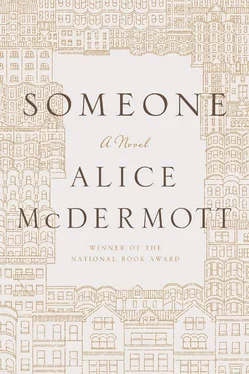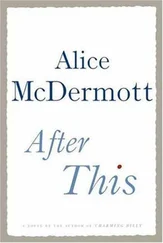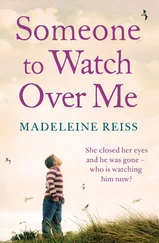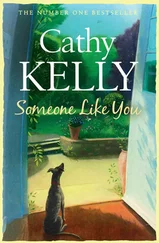There was an argument going on out in the street, voices of children mostly, cursing and shouting, tinny music from a radio somewhere. “Sounds like Brooklyn, too,” I said, and saw Gabe glance at me from across our mother’s bed.
The neighborhood was in decline, the building itself much neglected. Gabe and my mother now slept with lights on in all the rooms, just to keep the roaches at bay. I had it from Agnes that when the parlor-floor apartment was broken into and ransacked—drugs were involved—one of the cops who came to the door asked my brother why he was still here, why he didn’t take my mother to a better neighborhood. To Jersey or Long Island.
Gabe explained that our mother had raised her family here. That she had come here as a young bride. She’d mourn for the place, he said, should she leave it now.
“She’ll get over it,” the cop said.
Gabe told him, “My father spent his last days in these rooms,” and the cop looked around sympathetically, but raised his eyebrows in that wry, Come on, be realistic way of New Yorkers. “I doubt he’s coming back,” he said kindly.
Later, when Gabe was held up on the street by three thin teenagers, “youngsters,” he’d called them, he asked me over the phone, “What’s happened to so harden the children’s hearts?”
I shouldn’t have, but I laughed out loud. “Look where you’re living,” I said.
“There you are,” I told my mother, standing in the hot breeze that had entered along with the rattle of traffic and the voices in the street. “Brooklyn.”
My mother turned to Gabe, who was holding her hand. “Show me,” she said again.
The strain of this vigil was evident in the shape of his shoulders and the weariness in his eyes. He glanced up at me where I stood by the window and then down at her again. “All right,” he said softly. He got up slowly, pushing back the old dining-room chair. He leaned over the bed, slipping his hands beneath her. I watched in some astonishment as he lifted her, the bedclothes trailing.
“Get the door,” he said over his shoulder as he made his way out of the room with our mother in his arms like a child. He turned to his side to fit them both through the passageway, and I overtook them in the living room. We had lined the woodwork here with boric acid, to keep the roaches at bay, and there was something of its pale dust over everything in those days. It sometimes made me recall: sand of Syria and Mount Lebanon.
I went ahead to open the door. Gabe slipped through it, our mother in his arms. I followed them down the stairs, astonished, full of objections, but unable to object. I watched him as he gently negotiated the turnings. I wondered briefly if he planned to carry her all the way to the hospital. In the vestibule, the door to the parlor-floor apartment was still patched with plywood. Gabe turned to me and nodded toward the street. My mother’s eyes were closed. In my brother’s arms she seemed as small and light as an infant. I went ahead to pull the first door open, and then slipped around them to get the outer door as well. There was a blast of heat. Gabe carried my mother into the sunlight and down the steps. There were kids on the stoop across the street, there was the tinny music from their transistor radios. They glared, open-mouthed. A pair of dark men passing by looked up as Gabe came down the stairs with my mother in his arms. They walked to the curb, glancing over their shoulders, giving him wide berth. Gabe, too, went to the curb and then turned around to look back up at the house. I rushed to scoop up the sheet and the blanket that was now brushing the sidewalk.
“You’re here, Momma,” I heard him say. “Where we’ve always lived.”
My mother raised her head. She extricated one thin hand from the winding bedclothes and raised it to her eyes against the sun. She looked down the street and then up at our building, the blue summer light reflecting in the glass of the front door, the bowed parlor window—some plywood there, too—and then up to the fourth floor, where a bit of lace curtain, her handiwork, had been drawn through the opened window.
“Not home,” I heard Gabe tell her, reassuring her. “Brooklyn.”
My mother called me into the kitchen. Gabe was at the seminary out on Long Island by then, a beautiful place that was reached at the end of a long train ride. There were tall trees there and sloping lawns, and the young men walked in and out of the shadows of the leaves with their heads bent, their prayer books held gently between their hands, like little boys with caterpillars cupped in their palms.
“It is time,” my mother said, “that you learned a few things.”
On the narrow, corrugated tin of the drain board beside the sink, there was the flour bin and a bottle of buttermilk, the pale box of baking soda, a box of raisins, a box of salt, and a tin of caraway seeds. On the small table beneath the window, a bowl and a spoon and the measuring cup. There was as well a narrow card on which she had written in her careful hand the recipe for soda bread.
It was time, my mother said, that I learned a few things about cooking.
I stood in the kitchen doorway, all reluctance. Why? I wanted to ask.
My mother tied an apron around my waist. “All right,” she said. She nodded toward the table, the bowl and the spoon and the recipe card. I looked at her. The morning sunlight through the single window lit the down on her cheeks. It showed her brown eyes had some green in them, too. And that on either side of her tall forehead her dark hair was turning gray.
“Go ahead,” my mother said. “Get started.” And when she saw me hesitate, she impatiently put her hand on my shoulder and turned me toward the table and the bowl and the spoon. “Read the recipe over and then gather your ingredients,” she said slowly. “They’re all right here. I’ll supervise.”
I looked at my mother in her housedress and her apron trimmed with green rickrack, her wide soft breasts and her pillowed belly and her strong, firm hands. A body, a physical presence, more familiar to me in those days than my own, since my own was something I had only begun to consider.
“Don’t be dense, Marie,” my mother said. “Don’t stand there gawking at me like I’m speaking Chinese. Go.” And another touch on the shoulder. “Read the recipe over once and gather your ingredients. It isn’t hard. It’s high time you learned.”
Why? was what I wanted to say, but I was certain without conscious thought that the question would get me into trouble. I turned reluctantly to the table, my feet feeling heavy in my shoes. I picked up the card. It was my mother’s routine to make her soda bread on a Saturday morning while I went out to join my friends. It had always been so.
“Read it over,” my mother said. And I nodded, pretending to. The sun through the single window was bright in my eyes.
“Now gather what you need.”
I picked up the flour bin and brought it to the table. I picked up the buttermilk and the raisins. I went back for the salt and the tin of caraway seeds and then stood before the bowl and the spoon and the measuring cup. Beyond the window, beyond the gray bars of the fire escape, the wash my mother had done this morning was waving on the line: sheets and pillow slips, my school blouses and my father’s shirts, which were hung upside down by their hems, their arms waving in a way that made me grow dizzy in sympathy.
“Haven’t you forgotten something?” my mother said behind me. I looked at the ingredients I had lined up on the small table. The sun had turned the buttermilk a kind of blue. “No,” I said.
My mother took me by the shoulders and turned me around. “Are you sleepwalking?” she said. “There’s the baking soda. You’ll have nothing at all if you don’t have that.”
Читать дальше












